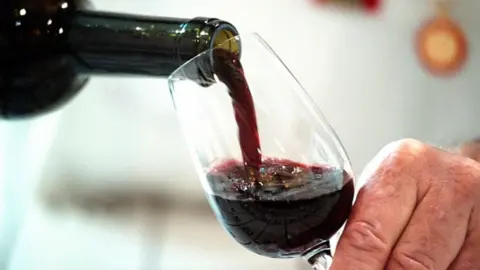Australia takes wine dispute with China to WTO
 Getty Images
Getty ImagesAustralia will file a formal complaint with the World Trade Organization (WTO) after China imposed up to 218% tariffs on its wine last year.
China says the tariffs were increased because of trading malpractice, which Australia denies.
Australia says it remains open to engaging directly with China to resolve the issue.
China is the top market for Australian wine exports and wineries say they have been badly hit by the hikes.
The decision to take the dispute to the WTO was made after extensive consultation with winemakers, the Australian government said in a statement.
"The government will continue to vigorously defend the interests of Australian winemakers using the established system in the WTO to resolve our differences," said Dan Tehan, minister for trade, tourism and investment.
Tony Battaglene, who is CEO of Australia's national association of grape and wine producers, told the BBC referring the matter to the WTO was the right way to try to resolve the issue even though there was "no quick fix".
"The main thing about a World Trade Organization action is that you actually get into a dialogue with the other country - in this case China - so it does enable governments to start to talk about [the issue and] that brings the possibility of resolution," he said.
China accuses Australia of a trade practice called dumping, which is illegal in international trade law.
Dumping is when a country exports a product to another at a price that is lower than it normally charges in its domestic market. The possible aim is to increase market share in the foreign country and drive out competition.
The two countries are important trading partners but diplomatic relations between them have worsened since Australia called for an international inquiry into the origins of Covid-19.
Australian Prime Minister Scott Morrison has repeatedly said his government would not give in to economic coercion.
At the end of last year China introduced its tariffs on Australian wine and said they could stay in place for five years. It was a move that followed months of other sanctions on Australian goods, such as barley, beef and coal.
Australian winemakers shipped just A$12m ($9m; £6.5m) of wines to China in the four months from December 2020 to March 2021, according to industry figures.
In the same time period a year earlier, they had exported A$325m of wine to China.
